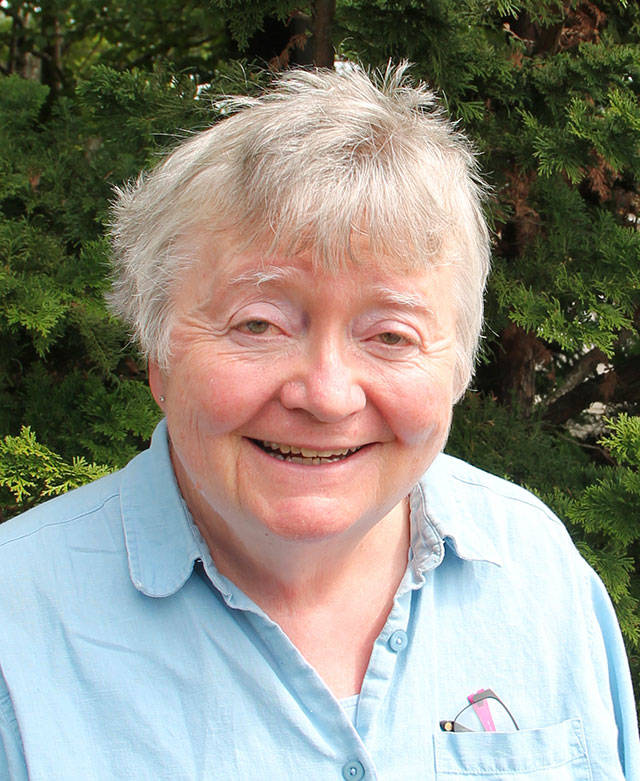I woke Sunday morning, Feb. 11, in the campground of San Lucas Cove on the Baja Peninsula, wanting to drive to a town where I could go to mass. We packed up our camp and drove to Mulaje, a town the guidebook warned us had very narrow streets. We had planned to camp south of Mulaje and drive back without the trailer, but here we were in the narrow streets, pulling the 16-foot Airstream and looking for a church. Suddenly we both realized that we were going the wrong way on a narrow one-way street. We stopped, pulled as far as we could to the right and tried to turn around. Immediately, five men came out from a variety of buildings and tried to guide us in turning around. I told them that my husband, who was driving, spoke no Spanish. They continued to shout directions in Spanish. I got out of the car and stood behind, while Bill attempted to back up as far as possible without crashing our bicycles, hanging behind the trailer, into the brick half-wall. The men motioned him on, while I was yelling, “Stop!” Why “Stop?” one man asked me in English. I pointed to the bikes, about 6 inches from the wall. The man yelled “No stop!” and showed me the clearance space with his hands, and motioned Bill to continue turning. Bill continued backing up a few more inches and was able to turn us around. All of our helpers cheered and returned to their houses. We spotted a church steeple and drove toward it.
All at once, we realized this was not an ordinary Sunday mass. A large number of people were standing in the square in front of the church. A hearse was parked in the center of the square. We had arrived unexpectedly at a funeral and were sitting in our obviously American car and camping trailer in the middle of a solemn ceremony. Embarrassed, we drove around the corner and parked. I agreed to meet Bill at this spot after the mass. I walked back to the church and found a seat in a pew near the back. The woman next to me smiled at me encouragingly. I sat down. The church was overflowing with mourners. The funeral procession began with two teenage boys carrying a child-sized casket. They were followed by their parents, the father supporting the mother, who was sobbing. The funeral mass unfolded. I could understand very little of the Spanish liturgy, but I knew the ceremony. During the sermon, I noticed that most of the congregation, men and women, were crying. I understood the priest’s statement that the child had been saved from great pain and was now in a better place. At the conclusion of the mass, the teenage brothers again walked solemnly down the aisle, sharing the weight of the tiny casket. As the mother walked by me, I understood her cry, “Yo quiero mi nino!” “I want my child!”
Now it is July of the same year. I am back home on Vashon Island. The memory of this mother haunts me, as I realize other mothers are crying the same words, “I want my child!” in response to actions of the United States’ government. During the seven weeks that we drove and camped the entire length of the Baja Peninsula, we were always treated with the respect given by the Mexican culture to older people. All of the Mexican people we interacted with were friendly and helpful. The current administration is attempting to vilify the Mexican people. I have taught English to many Mexican people on Vashon. They are honest, smart, hard-working, family-centered people, the kind of people I want for my neighbors.
— Lynne Ameling is a longtime islander, retired teacher and champion of children.



